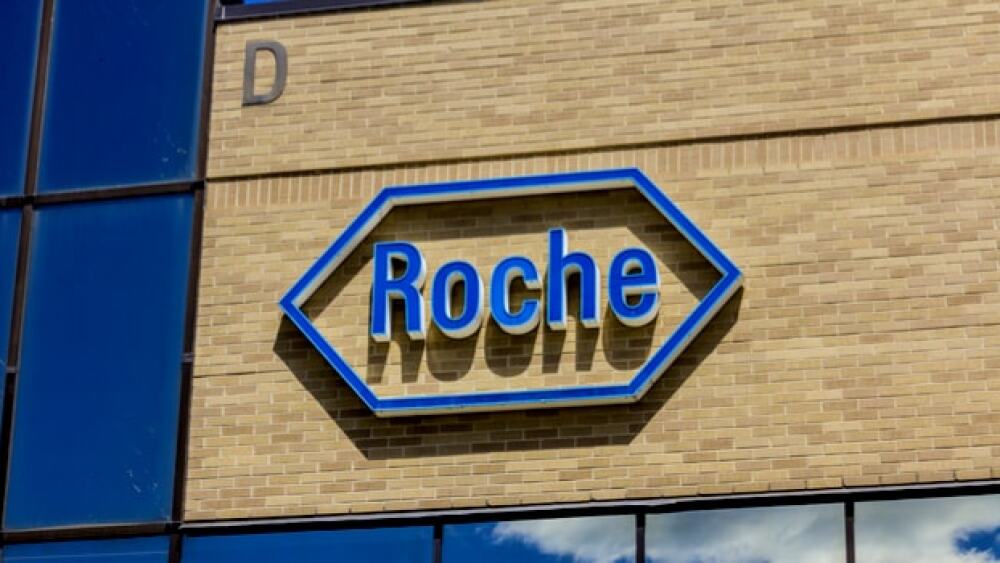“In the first half of the year, we achieved very strong results, driven by high demand for our new medicines,” stated Severin Schwan, Roche’s chief executive officer.
Despite facing increased generic competition for some of its best-selling oncology medications, Roche reported very strong sales for its newer drugs in the first half of 2019.
The company reported group sales increased by 9% at constant exchange rates (8% in Swiss francs), with its Pharmaceuticals Division sales up 10%, largely due to Ocrevus, Hemlibra, Tecentriq and Perjeta. Diagnostics Division sales were up 2%. Core operating profit was up 11%, and core earnings per share (EPS) was up 13%.
Roche noted that in the second quarter, it had several new drug approvals, including Polivy for previously treated aggressive lymphoma, Kadcycla for adjuvant treatment of HER2-positive early breast cancer, Venclexta in combination with Gazyva for previously untreated chronic lymphocytic leukemia, all in the U.S. In Japan, Rozlytrek was approved for the treatment of NTRK-positive tumors.
As a result, Roche raised its projections for 2019 to mid- to high-single digit sales growth.
“In the first half of the year, we achieved very strong results, driven by high demand for our new medicines,” stated Severin Schwan, Roche’s chief executive officer. “I am very pleased with the expedited approvals health authorities granted for Polivy and Rozlytrek. These medicines represent important treatment options for patients fighting cancer. Based on the performance in the first half of the year, we are increasing the outlook for the full-year 2019.”
All of which is good for the company and shareholders, because it expects to lose billions of dollars to generic competition over the next few years. Portfolio diversification has been the focus of its strategy as the oncology market becomes more competitive.
One of the areas of diversification Roche is working on is gene therapy. In February, Roche announced plans to acquire Spark Therapeutics for $4.3 billion. Based in Philadelphia, Spark focuses on gene therapies for genetic diseases, including blindness, hemophilia, lysosomal storage diseases and neurodegenerative diseases. Spark’s lead clinical asset is SPK-8011, a gene therapy for hemophilia A, which began Phase III trials this year. Spark also has SPK-8016 in a Phase I/II trial for hemophilia A. Spark’s Luxturna (voretigene neparvovec-rzyl) was approved by the U.S. Food and Drug Administration (FDA) in 2017 and by the European Commission in 2018. Luxturna is a gene therapy for patients with confirmed biallelic RPE65 mutation-associated retinal dystrophy.
The Wall Street Journal, however, notes that the U.S. Federal Trade Commission has delayed the acquisition over competition issues. Although those issues haven’t been spelled out, experts say it’s probably over the possibility Roche could delay one of Spark’s gene therapy programs in order to increase sales of one of its own drugs, primarily Hemlibra, Roche’s therapy to prevent bleeding in patients with hemophilia A.
Drugs being hit hardest by biosimilar competition are MabThera/Rituxan, for blood cancer, rheumatoid arthritis and certain types of vasculitis. Sales dropped 4% overall, with a 36% drop in Europe and a 46% decrease in Japan. In the U.S., sales increased by 4%. Herceptin also had a notable drop of 9% overall. Herceptin is for HER2-positive breast cancer and HER2-positive metastatic gastric cancer. Herceptin was hit by biosimilar launches in Europe and Japan beginning in mid-2018, and by the U.S.’s switch to Kadcycla in the adjuvant setting. The drop in the U.S. was by 2%. These drops were partially offset by increased sales in China.





